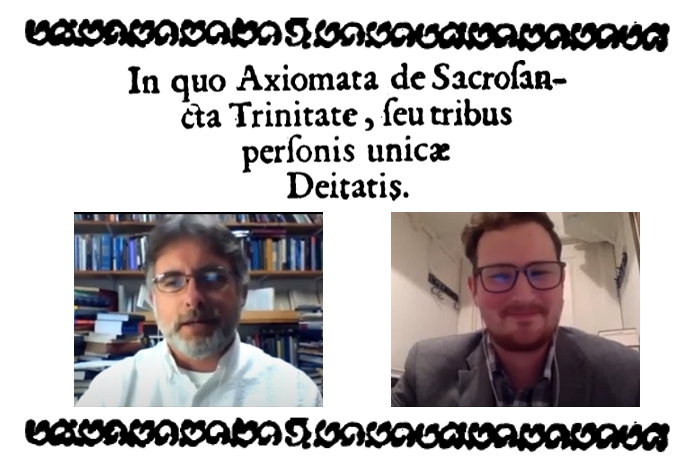
Is the Son like the Father, or unlike the Father? More precisely, are the Father and the Son similar in essence, or dissimilar?
It’s a trick question. “Similarity” is not a useful category for talking about God’s essence.
In his third Axiom, Polanus helps us understand what we can say about the persons of the Trinity in relation to the divine essence. The key is that he knows the right answer from the start: the Son is homoousios, consubstantial, of the same essence with the Father. But Polanus chooses to approach this truth by way of helpful contrast, ruling out both homoi-ousios (of similar essence) and an-homoi-ousios (of dissimilar essence).
Here’s Ryan Hurd’s translation, followed by our conversation:
Axiom 3. The persons of the deity are not ανομιοι, “dissimilar,” that is, essentially—like the Anomiians and Aetianians want it. Indeed, the persons are not ομοιουσιοι, because they are not similar essentially—something properly designated by the term ομοιουσιος, even up to being similar in essence. For being similar in essence is one thing; being similar essentially is another. The second makes three essences, while the first only three persons who are similar in one essence. Albeit, if we want to speak accurately, the persons of the deity should not be spoken of as actually similar in essence. Similar and dissimilar are referred with respect to quality, and God is free from quality, like Basil the Great [1] says. Likewise Athanasius: “Whoever takes away from the Son, with the result that he is not consubstantial with the Father, but makes him similar to the Father, denies that the Son is God.”[2]
[1] Basil the Great, Letter 8, section 3.
______________________
[2] Athanasius, “Contra Hypocrisim Meletii…de Consubstantialitate,” a work dubiously attributed.
I had a bit of an “Aha!” moment when Polanus explained why “similarity” is a bad category to try to make use of in this context. The reason he gives (following Basil), is that “similarity” is a matter of something’s qualities, and a quality, in this sense, is something inapplicable to God. Ryan points out that Polanus is using “quality” in a sense derived from Aristotle’s categories. Though Polanus doesn’t quote it here, his remarks remind me of Augustine calling God “Great without quanity, good without quality,” and so on (more on that here).
A little more on that Letter 8, attributed to Basil. It is fantastic. Definitely click through and read the free LNPNF version of it. In the more recent Fathers of the Church edition, Roy Deferrari reports that the letter’s authorship is disputed, and it may be by Evagrius. But it’s a very important and highly influential document that, as Deferrari points out, helped settle the theological vocabulary of the ancient church on some key terms, in fact, on the very terms Polanus is working with in this axiom.
